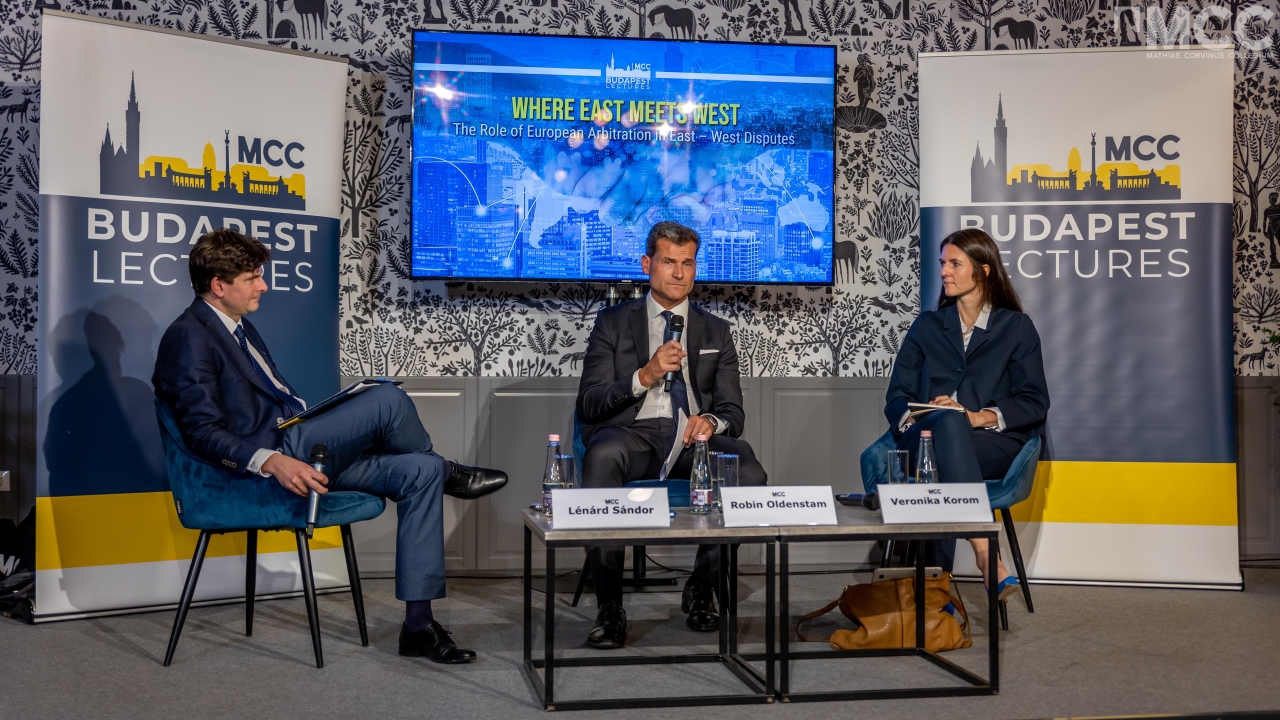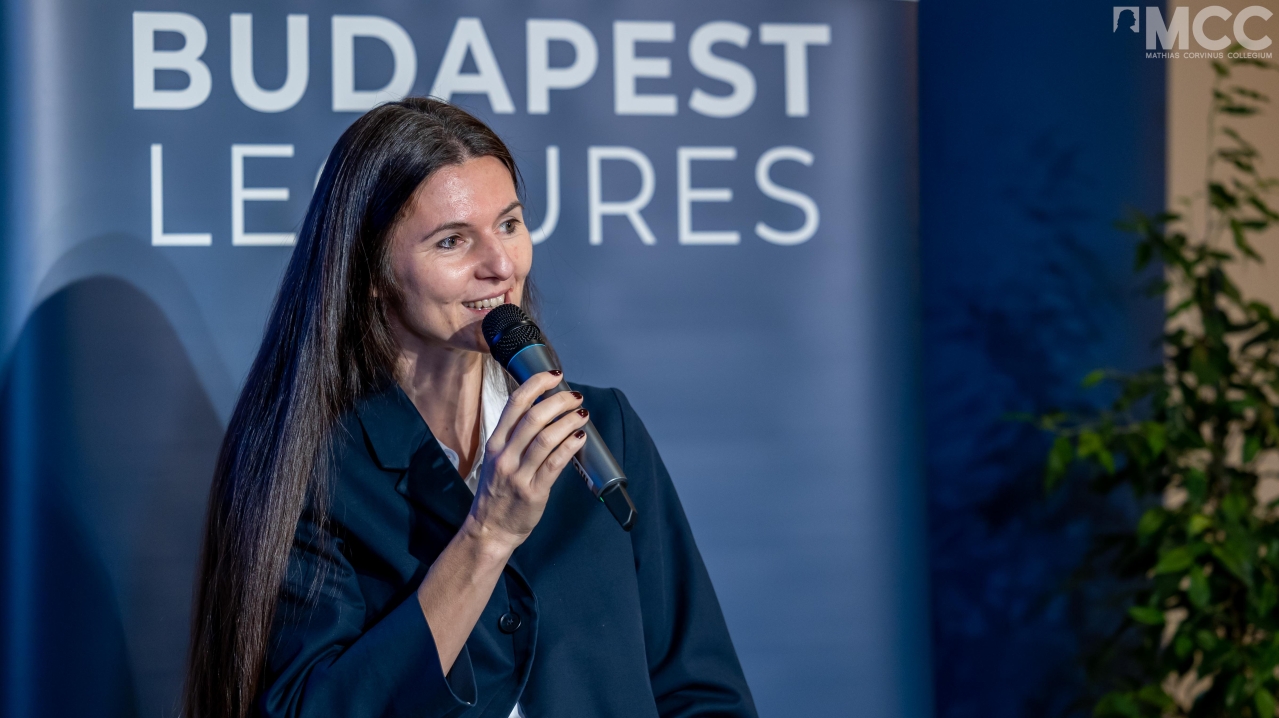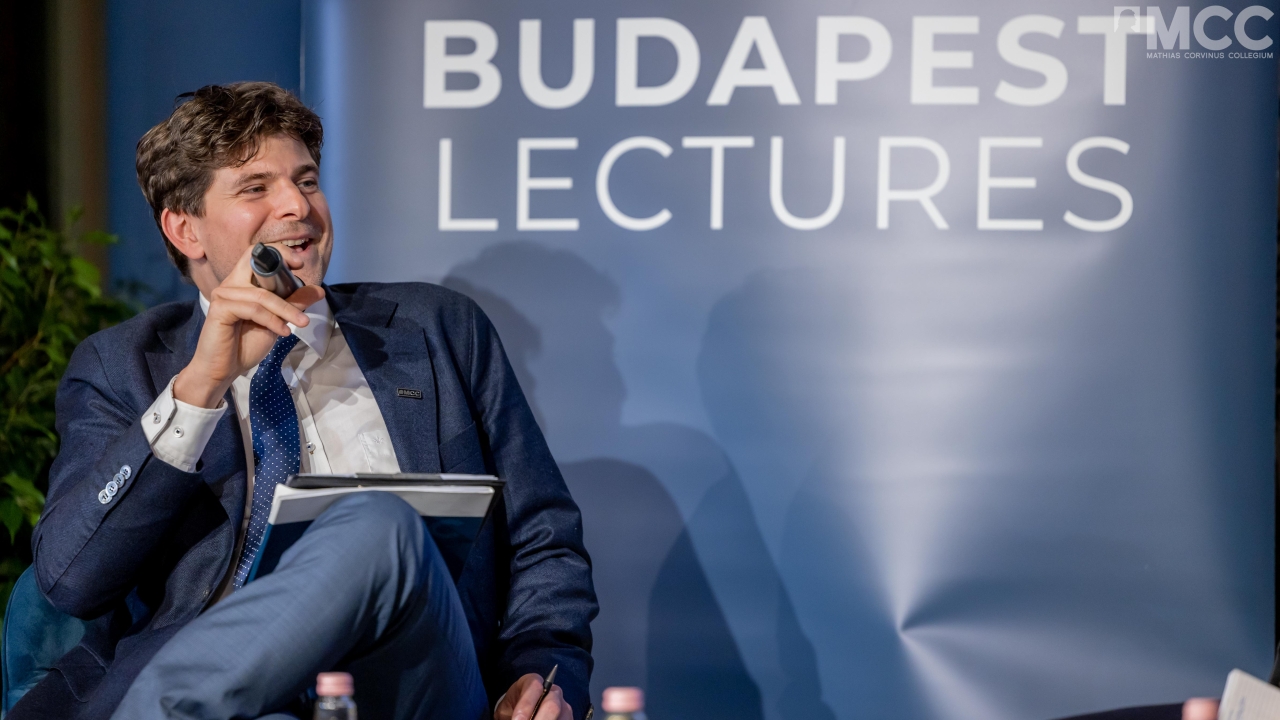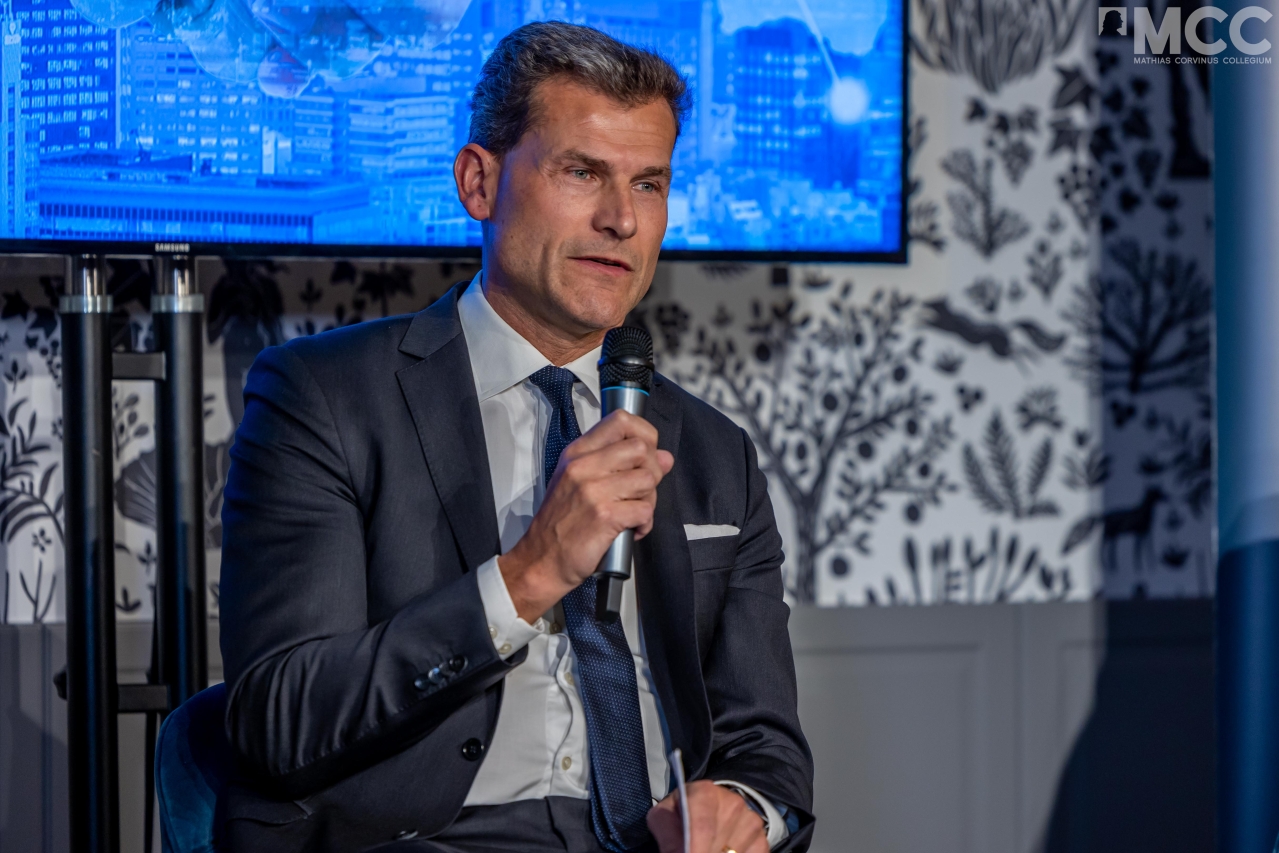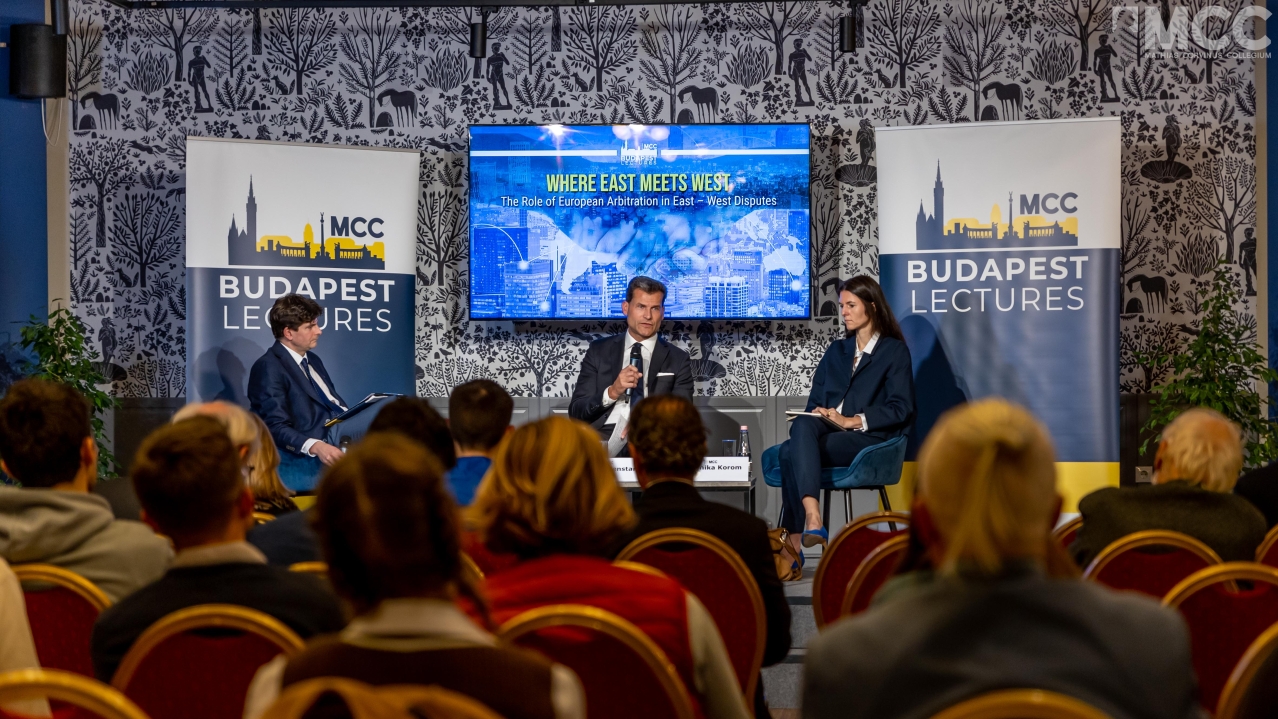Reading time: 2 minutes
Following the Swedish model, Central Europe, and Hungary in particular, should strive to play a bridge-building role in settling disputes between East and West - Robin Oldenstam, Chair of the Board of the Arbitration Institute of the Stockholm Chamber of Commerce (SCC) and Veronika Korom, Professor at ESSEC Business School and President of the Hungarian Arbitration Association pointed out during the MCC Budapest Lecture event in conversation with Lénárd Sándor, Head of the Center for International Law at the MCC.
The discussion sought to explore the role of European arbitration institutions in dispute resolution in East-West disputes. One of the traditional and historic venues for international dispute resolution is Stockholm. The Swedish capital has historically been a place of international dispute settlement between the Soviet Union, its successor states, and China on the one hand, and Western states, including the United States of America, on the other. The settlement of the sensitive dispute over the construction of the US embassy in Moscow is an example of the important role that international dispute settlement can play in a politically tense period such as the Cold War. Robin Oldenstam argued that Sweden's neutrality in the two world wars was a major factor that led to the emergence of Stockholm as a bridge in East-West dispute settlement, while Veronika Korom pointed out that Hungary’s geographical and geopolitical location could give a competitive edge over other arbitration forums and should encourage Hungary to strive to play a similar role.
Based on the moderator’s question, the discussion also highlighted the impact of the ongoing war in Ukraine along with the European sanctions adopted in response to this conflict on the functioning of arbitration forums. The Swedish expert pointed out that the right of access to justice is such a fundamental a European value that should not be undermined by sanctions. However, several European arbitration institutions had to lobby at the European Commission to explicitly exempt arbitration proceedings from the EU sanctions policy. In this context, Veronika Korom underlined that the sanctions themselves could lead to a number of commercial and investment arbitration disputes between East and West, and that there will be a need for strong, neutral venues that can handle these disputes adequately. The discussion also touched on the strengthening of Asian arbitration centers, especially Singapore, which poses a serious challenge to European forums as they could take over a significant part of the Est-West dispute settlement. In this context, the experts stressed that competition should encourage European arbitration institutions to reform, improve and innovate their services in order to maintain their achievements in regard to East-West dispute resolution.
